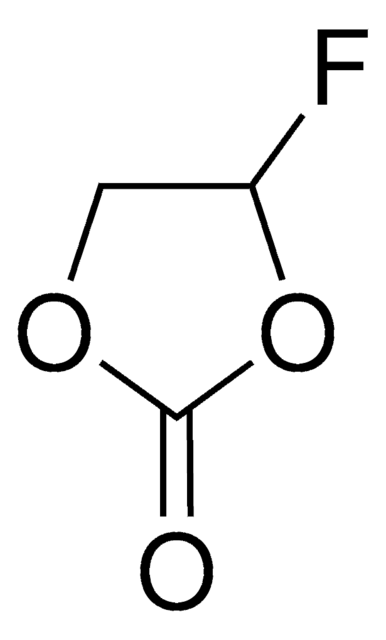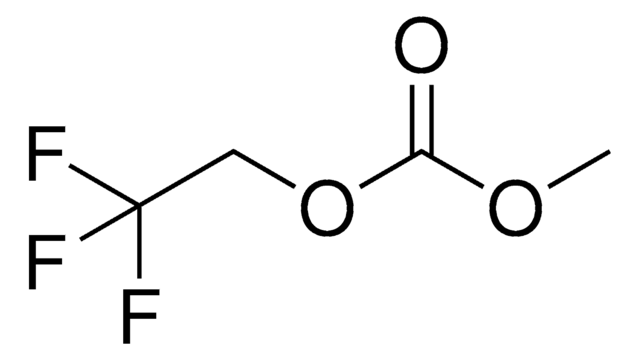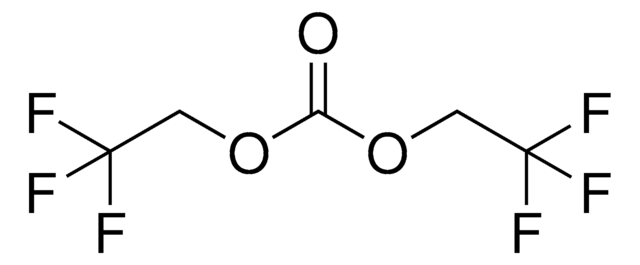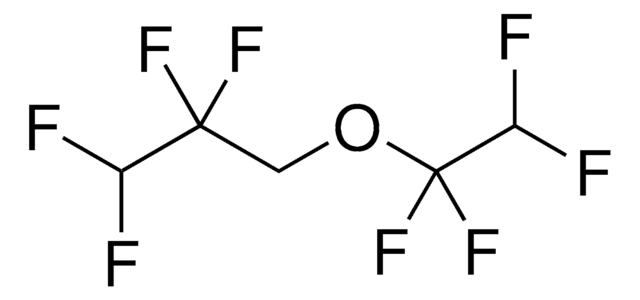757349
Fluoroethylene carbonate
99%
Synonym(s):
4-Fluoro-1,3-dioxolan-2-one, FEC
About This Item
Recommended Products
Quality Level
Assay
99%
form
solid
greener alternative product characteristics
Design for Energy Efficiency
Learn more about the Principles of Green Chemistry.
sustainability
Greener Alternative Product
bp
212 °C
mp
18-23 °C
density
1.485 g/cm3
application(s)
battery manufacturing
greener alternative category
storage temp.
2-8°C
SMILES string
FC1COC(=O)O1
InChI
1S/C3H3FO3/c4-2-1-6-3(5)7-2/h2H,1H2
InChI key
SBLRHMKNNHXPHG-UHFFFAOYSA-N
Looking for similar products? Visit Product Comparison Guide
Related Categories
General description
Application
Signal Word
Warning
Hazard Statements
Precautionary Statements
Hazard Classifications
Acute Tox. 4 Oral - Eye Irrit. 2 - Skin Irrit. 2 - Skin Sens. 1
Storage Class Code
11 - Combustible Solids
WGK
WGK 1
Flash Point(F)
Not applicable
Flash Point(C)
Not applicable
Choose from one of the most recent versions:
Already Own This Product?
Find documentation for the products that you have recently purchased in the Document Library.
Customers Also Viewed
Articles
Experts discuss challenges and production processes of nickel-rich layered oxide cathode materials in energy storage systems.
Solid oxide fuel cells and electrolyzers show potential for chemical-to-electrical energy conversion, despite early development stages.
Li-ion batteries are currently the focus of numerous research efforts with applications designed to reduce carbon-based emissions and improve energy storage capabilities.
The critical technical challenges associated with the commercialization of electric vehicle batteries include cost, performance, abuse tolerance, and lifespan.
Our team of scientists has experience in all areas of research including Life Science, Material Science, Chemical Synthesis, Chromatography, Analytical and many others.
Contact Technical Service













